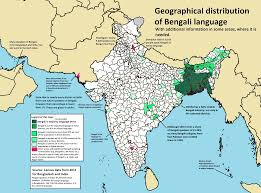
Why is anti-Bengali sentiment increasing so much across India?
The rise in anti-Bengali sentiment across India is a deeply troubling trend, and it’s rooted in a complex mix of historical, political, and socio-economic factors. Here's a structured breakdown to help unpack what's going on:
Historical Roots of Tension
- Colonial-era divisions: In Assam, resentment toward Bengalis dates back to British policies that promoted Bengali bureaucrats and suppressed Assamese language from 1836 to 1897.
- Partition legacy: Post-1947, many Bengali Hindus and Muslims migrated across borders, leading to demographic shifts that fueled local anxieties, especially in the Northeast.
Contemporary Triggers
- NRC and citizenship debates: The National Register of Citizens (NRC) in Assam excluded nearly 3.8 million people, many of whom were Bengali-speaking Indians. This intensified suspicion and discrimination.
- Operation Sindhoor: A recent crackdown saw thousands of Bengali-speaking workers—many Indian citizens—detained or pushed across the Bangladesh border without due process.
- Labeling as “Bangladeshi”: In states like Gujarat, Odisha, Delhi, and Maharashtra, speaking Bengali alone has become grounds for harassment. Migrant workers are being profiled and detained under the pretext of national security.
Socio-Economic Dimensions
- Labour migration: Bengalis are prominent in sectors like diamond polishing, textiles, and security services. Their visibility in local economies sometimes triggers xenophobic backlash.
- Cultural stereotyping: Bengalis are often stereotyped as outsiders, despite being integral to India’s cultural and intellectual fabric.
Political Undercurrents
- Majoritarian narratives: In BJP-ruled states, some civil rights groups argue that anti-Bengali actions disproportionately target Muslim communities and reflect broader majoritarian politics.
- Lack of unified resistance: While parties like Trinamool Congress have raised concerns in Parliament, there’s no widespread political mobilization against this trend.
Deeper Implications
This isn’t just about regional bias—it’s a challenge to India’s constitutional promise of equality and unity in diversity. When linguistic identity becomes a liability, it undermines the very idea of India as a pluralistic nation.
